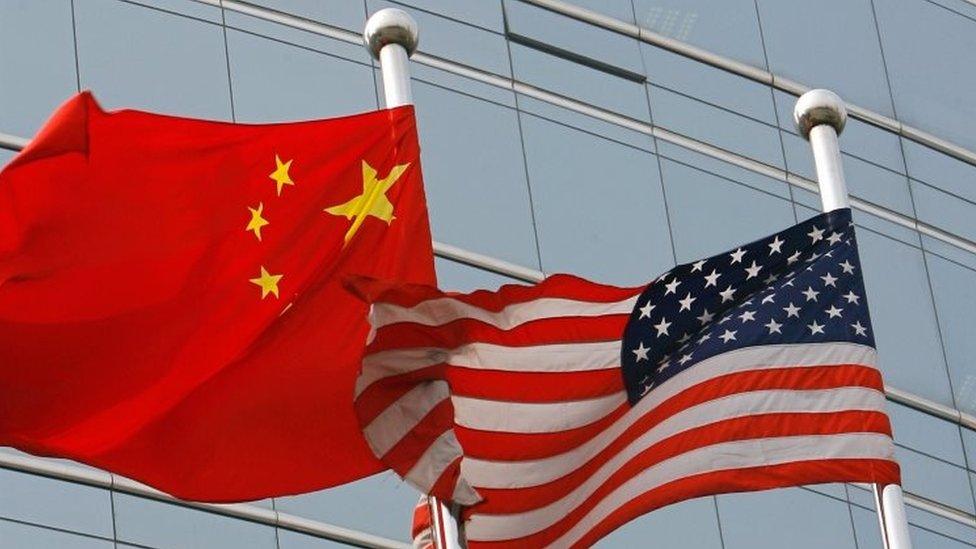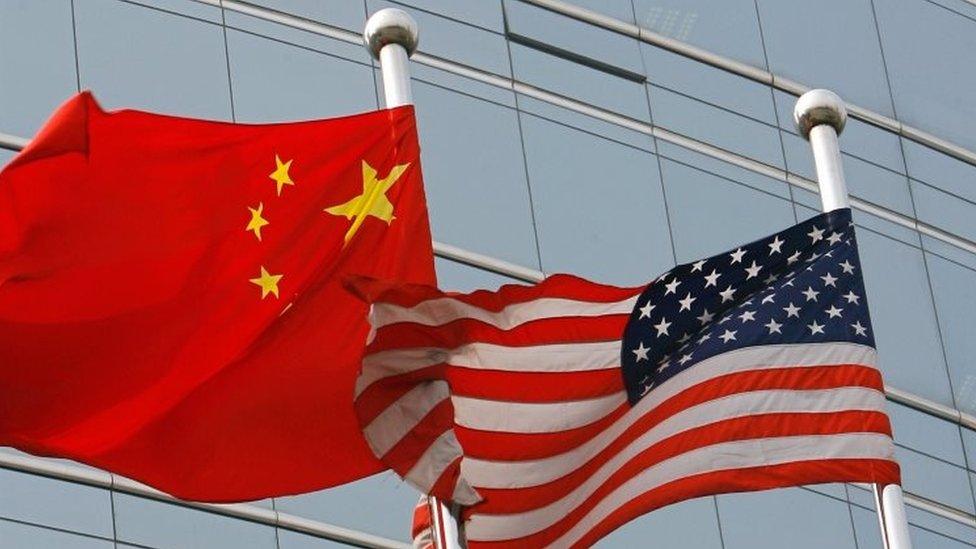NYPD officer charged with spying for China
- Published

A New York City Police Department officer has been charged with acting as an illegal agent for China.
Tibet-born Baimadajie Angwang is accused of reporting on the activities of Chinese citizens in the New York area and assessing potential sources of intelligence in the Tibetan community.
The naturalised US citizen, who worked for the police department's community affairs unit, was arrested on Monday.
If convicted, he faces a maximum sentence of 55 years in prison.
According to prosecutors, Angwang is also employed by the US Army Reserve, working as a civil affairs specialist.
He is accused of being in contact with two officials at the Chinese consulate.
Aside from reporting on Tibetans in the city, he allegedly provided the consulate with access to senior NYPD officials through invitations to official events.
Angwang told his Chinese official handler that he wanted to be promoted within the NYPD so that he could assist China and bring the country "glory", court documents said., external
Angwang is also accused of committing wire fraud, making false statements and obstructing an official proceeding.
Court documents said he received "multiple substantial wire transfers from the PRC [People's Republic of China]".
According to the documents, his father is a retired member of China's army and a member of the Communist Party of China. His mother is also a member of the party and a former government official.
"As alleged in this federal complaint, Baimadajie Angwang violated every oath he took in this country. One to the United States, another to the US Army, and a third to this Police Department," NYPD Commissioner Dermot F Shea said in a statement.
Tibet, a remote and mainly Buddhist territory, is governed as an autonomous region of China. Beijing says the region has developed considerably under its rule.
But rights groups say China continues to violate human rights, accusing Beijing of political and religious oppression - something Beijing denies.
- Published21 July 2020

- Published25 July 2020
